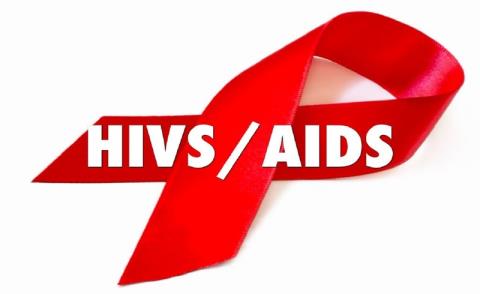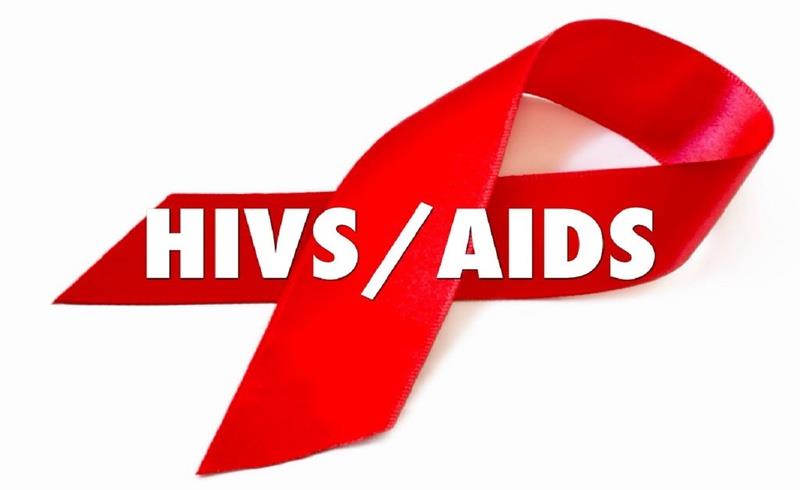How long does HIV diarrhea last? Why does HIV infection increase the risk of diarrhea?

HIV is known as the disease of the century that not only spreads easily, but also creates conditions for opportunistic diseases to develop. This includes persistent diarrhea. So why is HIV infection a risk of diarrhea and how long does HIV diarrhea last?
Diarrhea is one of the symptoms appearing in the acute stage that affects the quality of life of patients. Let's learn about the causes of diarrhea when infected with HIV and how long HIV diarrhea lasts!
What is HIV?
HIV, also known as Human Immunodeficiency Virus, is a virus that, when entering the human body, destroys the immune system of the infected person. When the immune system has weakened function, opportunistic diseases develop and affect health, causing dangerous symptoms. That is why HIV is also known as an opportunistic disease.
 How is HIV - AIDS defined?
How is HIV - AIDS defined?
HIV does not exist in natural sources of infection. Therefore, people with HIV are the main source of infection for this disease. Some possible routes of HIV transmission include:
- Infection through unprotected sex.
- Infection by sharing needles with an infected person or sharing personal items (brushes, razors, etc.) of an HIV-infected person.
- Transmitted by contact with blood and fluids containing the HIV strain.
- The final route is mother-to-child transmission.
Depending on the stage of the disease, the patient will have different symptoms. In the primary infection stage when the new virus invades and proliferates in the body, the patient shows symptoms of headache, dizziness, nausea...
These symptoms are atypical, last only 1 to 4 weeks, and are often mistaken for the common cold. When you have entered the final stage (the stage of AIDS), the immune system has been severely damaged, creating conditions for infections to develop. Especially, the typical initial symptom of this acute phase is prolonged diarrhea, which greatly affects the patient's quality of life.
Causes of diarrhea in HIV patients
Diarrhea in patients with HIV can be the result of many different causes. In general, diarrhea is one of the first symptoms of the acute phase (AIDS stage). Accompanying diarrhea, patients may also have other diseases such as colds with acute diarrhea, common flu-like symptoms such as fever, sore throat, sweating while sleeping, nausea, rash... However, compared to the common cold, these symptoms are somewhat more dangerous because they persist and do not improve despite taking antibiotics.
Prolonged diarrhea can also lead to other dangerous complications because the body loses a lot of water, even if there is no timely treatment, it can be life-threatening. According to published studies, persistent diarrhea in HIV patients is not caused by the HIV virus but is caused by the side effects of antibiotics used during treatment.
All current antibiotics for HIV treatment have the ability to cause diarrhea, especially lopinavir (or fosamprenavir) has the highest rate of this side effect. When detecting prolonged diarrhea during the course of taking the drug, it is best to contact the treating doctor as soon as possible for the most detailed advice on how to overcome it.
The University of California Medical Center, USA once published a study that mentioned the causes of diarrhea in HIV patients such as:
- Intestinal infections caused by the bacteria Mycobacterium avium and Cryptosporidium. These two bacteria have been reported to be the leading bacteria causing intestinal infections not only in people with HIV but also in people with normal immune systems. However, for people without immune-destroying HIV, symptoms are usually milder and of shorter duration than in HIV-positive people.
- Due to weak resistance, HIV patients can also get dysbacteriosis syndrome (also known as SIBO). It is also one of the causes of persistent diarrhea and other intestinal symptoms in HIV-infected patients.
- In addition, HIV virus can also be the direct cause of diarrhea in patients.
How long does HIV diarrhea last?
Chronic diarrhea significantly reduces the patient's quality of life. So how long will this diarrhea last?
As mentioned above, diarrhea in HIV patients is caused by many different causes, depending on the cause, the symptoms will have different severity and duration. If the diarrhea is caused by an acute infection, it should clear up on its own in 1-2 weeks. If diarrhea is caused by antibiotics being treated, just switch to another antibiotic prescribed by the treating doctor, this situation will stop on its own.
In addition, whether diarrhea persists or not is influenced by the health status of the patient. For patients who have entered the terminal stage, when the immune system is almost completely destroyed, the patient's condition is very weak at this time, which can be a condition that causes more severe and prolonged diarrhea. Therefore, in the case of diarrhea in HIV patients, a reasonable diet and sleep to improve resistance is extremely necessary.
How long HIV diarrhea lasts depends on the individual patient's condition
Some suggestions for treating diarrhea
Diarrhea in people with HIV tends to be more severe and lasts longer than in the general population, so the treatment must also be much more attentive. Depending on the cause, there are different suggestions for treatment. For patients with diarrhea caused by the use of antibiotics, the best way to do it is to immediately notify the doctor for timely advice.
Usually, doctors will consider the severity of the disease and how long it will last to decide which other drug to use. Absolutely do not arbitrarily stop the drug without a doctor's prescription because this can cause the virus to multiply strongly and form drug-resistant mutants.
For patients with infectious diarrhea, doctors will determine the specific cause of the infection and then prescribe the appropriate medication. Absolutely do not arbitrarily use the drug treatment without the prescription of a professional doctor.
In addition to preventing and contributing to the treatment of diarrhea, you should also pay attention to forming good habits such as:
- Avoid using stimulants.
- Drink 2 liters of water every day.
- Limit the use of dairy products and products.
- Add fiber-rich foods such as green vegetables and fruits to your daily meals.
- Limit foods that are greasy, too spicy or too sweet.
 Drinking enough 2 liters of water a day will contribute to the treatment of diarrhea
Drinking enough 2 liters of water a day will contribute to the treatment of diarrhea
Thus, the article has provided readers with HIV opportunistic diseases, causes of diarrhea in HIV patients as well as answers to the question of how long HIV diarrhea lasts . Hope these basic knowledge will be useful to readers. Wishing you good health.